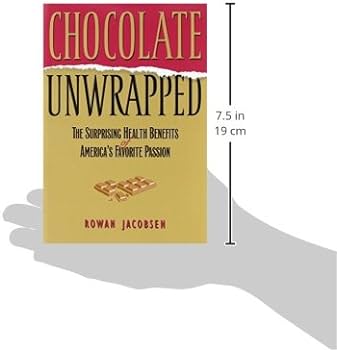Yes, chocolate contains caffeine, although the amount varies with the type of chocolate. Dark chocolate typically has more caffeine than milk chocolate.
Chocolate and caffeine share the allure of indulgence and a much-needed energy boost. Varying across different types of chocolate, from the creamy milk variety to the rich and bold dark slabs, the caffeine content in chocolate is an important consideration for sensitive individuals or those keeping a keen eye on their intake.
As a favorite snack or dessert, chocolate’s caffeine content adds to its complexity. Consumers often look to understand the nutritional facets of their treats, and caffeine levels play into this. Whether it’s a cozy mug of hot cocoa or a piece of decadent dark chocolate, recognizing the presence of caffeine helps to navigate dietary choices and energy management. This information is not only vital for informed consumption but also adds depth to the overall chocolate experience.
:max_bytes(150000):strip_icc()/faw-detail-k-m-85-percent-hacienda-victoria-ecuador-rkilgore-1316-1-97780e8a8211466db27a7915125a89c6.jpeg)
The Hidden Buzz In Chocolate
Many people wonder, does chocolate have caffeine? Yes, it does! Dark chocolate has the highest levels. Milk chocolate comes next. White chocolate has almost no caffeine. Remember, the darker the chocolate, the more caffeine it contains.
Chocolate often has less caffeine than coffee or tea. A regular coffee cup has much more caffeine than a chocolate bar. Tea usually has less caffeine than coffee. But it can have more caffeine than chocolate. So, enjoy your chocolate treats knowing they give a little buzz.
| Type of Chocolate | Caffeine Content |
|---|---|
| Dark Chocolate (1 oz) | 12-25 mg |
| Milk Chocolate (1 oz) | 3-6 mg |
| White Chocolate (1 oz) | 0-2 mg |
Unwrapping The Chocolate Making Process
The journey of chocolate begins with the harvesting of cocoa beans. These beans contain caffeine naturally. The amount of caffeine can change during the chocolate-making process. Roasting beans reduces some caffeine. Chocolate type matters too. Dark chocolate often has more caffeine than milk chocolate. White chocolate has none because it lacks cocoa solids.
The processing from bean to bar uses heat, friction, and mixing. These steps can affect caffeine levels. Every chocolate bar’s caffeine content will differ. Many factors play a role in this, including bean origin and processing techniques.
Health Impact Of Caffeine In Chocolate
Chocolate contains caffeine, though amounts can vary. Dark chocolate usually holds more caffeine than milk chocolate. Caffeine levels in chocolate are significantly less than what you would find in a cup of coffee, making chocolate a less potent source of caffeine.
Eating chocolate in moderation can be part of a healthy diet. Small amounts may provide antioxidants and improve heart health. People with caffeine sensitivity should take care, as even the small amounts of caffeine in chocolate can cause issues like restlessness or sleep disturbances.
| Chocolate Type | Caffeine Content |
|---|---|
| Milk Chocolate | Lower |
| Dark Chocolate | Higher |
Exacts amounts can vary based on the recipe and cocoa content.
Caffeine Myths And Facts About Chocolate
Many people think chocolate is high in caffeine, but this isn’t quite correct. The amount of caffeine in chocolate is quite low compared with coffee or tea. For instance, a standard 50-gram dark chocolate bar may contain about 25 to 50 milligrams of caffeine, which is far less than a typical cup of coffee that has around 95 milligrams. Still, your favorite milk chocolate has even less, ranging around 5 to 10 milligrams for the same size. While dark chocolate has a bit more, it’s not enough to keep you awake at night unless you are very sensitive to caffeine.
Research indicates that the actual effect of chocolate on energy levels is minimal. So, you can enjoy that chocolate treat without worrying much about caffeine. Just remember, enjoying chocolate in moderation is key, as it also contains sugar and fat.
Choosing Your Chocolate Wisely
Chocolate comes in many types. Dark chocolate often has more caffeine than milk chocolate. The darker the chocolate, the higher the caffeine content. White chocolate is the safest choice for avoiding caffeine, as it typically contains none.
Eating chocolate too close to bedtime might keep you awake. Try to have it earlier in the day. Look for chocolates labeled as “caffeine-free” or “low caffeine” if you’re sensitive to it.
| Type of Chocolate | Caffeine Content |
|---|---|
| Dark Chocolate | High |
| Milk Chocolate | Medium |
| White Chocolate | None |

Frequently Asked Questions For Does Chocolate Have Caffeine
Is Chocolate Higher In Caffeine Than Coffee?
Coffee contains more caffeine than chocolate. A standard cup of coffee has about 95 mg of caffeine, whereas chocolate has significantly less.
Can You Eat Chocolate If You Can’t Have Caffeine?
Yes, you can eat chocolate even if you’re avoiding caffeine, by opting for white chocolate which contains no caffeine, or choosing high-quality, dark chocolate with minimal caffeine content. Always check the label for exact caffeine amounts.
Can Chocolate Keep You Awake?
Yes, chocolate can keep you awake due to its caffeine content, especially dark chocolate which has higher levels. Theobromine, another stimulant present in chocolate, may also disrupt sleep.
Does Dairy Milk Chocolate Contain Caffeine?
Yes, Dairy Milk chocolate contains caffeine. The amount is typically around 20mg per 1. 55 ounce serving.
Conclusion
To sum up, chocolate does contain a touch of caffeine, yet its levels vary. Dark chocolate enthusiasts can expect a small energy boost, while milk chocolate has minimal amounts. For those sensitive to caffeine or enjoying chocolate as a nighttime treat, moderation is key.
Savor the flavor and stay informed about your caffeine intake.

